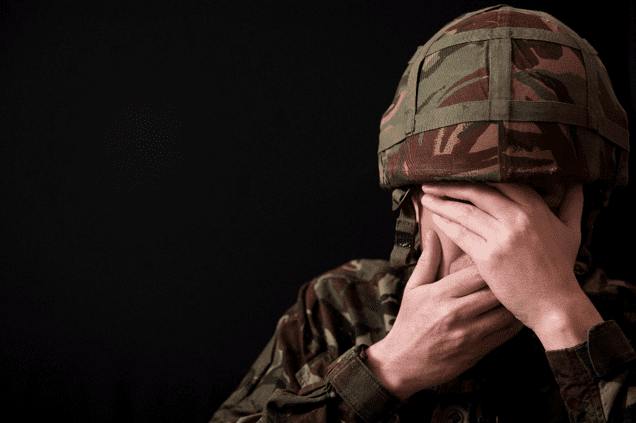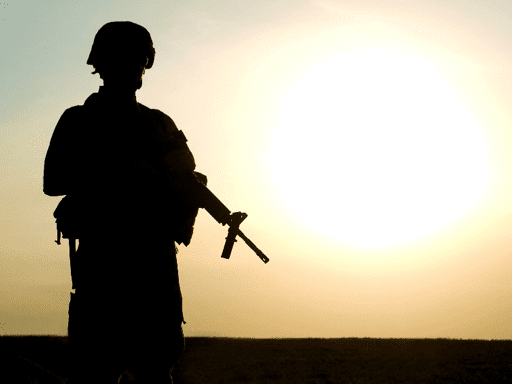7 Reasons To Seek Addiction Treatment
Substance use disorder, which is more colloquially known as drug addiction, is a serious mental...
toll free: 844.955.3042
local tel: 561.464.6505
fax: 561.450.6637
info@recointensive.com
RECO Intensive
140 NE 4th Avenue
Delray Beach, FL 33483
In the United States, soldiers are heroes. We rely on our servicemen and women to keep the country safe at home and abroad, representing American ideals everywhere they go and carrying out their orders for the greater good. We tend to lionize the ideal of the returning soldier, sharing and celebrating images of our hardened defenders of freedom embracing their loved ones in airports, crystallizing that brief moment of allowable emotion.
Often there’s a dog, happy to see its owner after a long deployment. It’s a lovely image, but it belies the dark realities many active duty military personnel face when returning from combat.
As strong as military servicemen and women may be, playing a part in the machinations of war can have profound, lasting negative impacts on the human psyche. War is traumatic, and it exposes human psychology to unnaturally brutal and violent scenarios which no reenactment or film recreation could ever do justice; you can’t understand it unless you’ve been there.


Many people employed by the Department of Defense across the five branches of the Armed Forces will spend their entire military career outside the immediate danger of active war zones. Even so, the military, as a whole, faces unique and specific challenges when it comes to acknowledging and addressing substance abuse issues, as well as their connection with the psychological scarring of Post-Traumatic Stress Disorder and other mental health issues.
For many active duty military members and their families, seeking help from an outpatient addiction treatment facility is out of the question for reasons that wouldn’t make sense to anyone outside the system.
When people experience or play witness to painful, jarring, or shocking events like those that take place every day in active war zones, there’s going to be a lot of psychological trauma to unpack later on. Whether or not it feels like it to the individual at the time, violence and extreme stress can transform the workings of the human psyche, and, where such trauma exists, so will coping mechanisms.
Coping mechanisms, like binge drinking, heavy tobacco smoking, and prescription drug abuse have been around for a long time and impact innumerable American populations, but perhaps none more disproportionately than returning veterans.
While use of illicit drugs like heroin and cocaine is significantly lower among military servicemen and women, thanks to the Department of Defense’s zero tolerance drug policy, abuse of prescription drugs like opioid painkillers is much higher among service people than the national average.
Being in the military is physically demanding, especially in active war zones and in-field deployment scenarios. Servicemen and women carry heavy equipment almost all of the time, and non-combat injuries from falling, tripping, and general bodily wear and tear abound throughout the ranks.
Factor in injuries sustained from combat and the prolonged recovery times associated with wartime bodily harm, and you’ve got a troubling recipe for prescription painkiller addiction; perhaps this is why military abuse of prescription drugs spiked from two percent in 2002 to eleven percent in 2008, at the peak of our nation’s military conflicts in Iraq and Afghanistan.1
Post-Traumatic Stress Disorder and Substance Use Disorder have been shown to frequently be co-occurring conditions,2 with substances (most frequently heavy alcohol use) being used as part of a cycle of psychological trauma avoidance. A big part of this has to do with our cultural expectation of returning servicemen and women to simply transition back into quiet civilian life after spending months or years in an actively hellish landscape of fighting and violence.
Rather than attempting to confront their issues through trauma treatment or psychological therapy, many veterans, instead, attempt to control and suppress the numbness and detached terror of PTSD by self-medicating with alcohol and drugs.
It’s unfortunate that so many veterans turn to self-medication in order to manage the impact of PTSD on their lives, but it’s not surprising considering the pressure we as a society place on them to just “go back to normal” after a difficult deployment.


Non-military people tend to assume that post-deployment veterans and their families’ health care needs are well tended by the Department of Defense. Entire swaths of the government are dedicated to Veterans’ affairs, and VA hospitals and medical care centers around the country exist purely to provide support to these returned heroes. However, the culture of strength and denial of weakness prevalent in military circles often lead veterans to eschew any psychological help available to them.
A significant portion of active duty troops and their families who are eligible for psychological assistance and outpatient treatment programs for Substance Use Disorders choose not to take advantage of these services. Weakness of any sort can be frowned upon in the military; while servicemen and women usually have no problem seeking help for physical afflictions like bodily injuries and pain, it’s generally frowned upon in the culture of the military for veterans to address or even acknowledge their psychological wounds.
Many fear workplace discrimination, especially those still on active duty worried about their potential for promotion in their continuing military career. The rules for doctor-patient privilege work differently within the Department of Defense than they do in the civilian sector, and many servicemen and women fear that admitting to substance abuse issues like prescription drug addiction or PTSD may preclude them from future opportunities for advancement should their commanding officers find out.
This is especially worrying for career military service people, as legal recourse for said workplace discrimination is all but nonexistent in the Department of Defense; members of the military are expected to do as they’re told without making a fuss, and, as such, many turn to prescription painkillers and alcohol abuse in order to quietly manage their own psychological pain.
The best thing we can do to help our returning veterans struggling with addiction is to do away with the notion of addiction as weakness. This is pervasive throughout our culture, in general, but nowhere more prevalent than in military circles. If we make it safe and allowable for soldiers to acknowledge their psychological injuries, as well as the physical ones, then perhaps the rising number of veterans struggling with alcoholism and prescription opioid abuse will begin to drop.
Soldiers are human beings, just like the rest of us at home. The prevalence of drinking and drug abuse as self-management of PTSD and other trauma-related afflictions among their ranks illustrates the fact that we need to take better care of the people who protect our country and her interests on the international stage.


Children, many of whom not very familiar with a parent who’s been away on long deployment, will tend to internalize the wrongness and pain they feel emanating from their mother or father, passing trauma and lasting emotional distress from one undeserving person to another.
It’s important to recognize that returning veterans are undergoing a massive transition, which, in itself, may be traumatic even without the added mental and emotional stress of war-related PTSD. In discussing veterans’ health issues, we need to recognize that addiction is addiction, trauma is trauma, and intensive outpatient therapy can absolutely be beneficial when it comes to addressing these issues among service people. We need to do better by our heroes and allow them space and freedom to seek healthy means of coping rather than harmful, self-destructive ones.
Sources